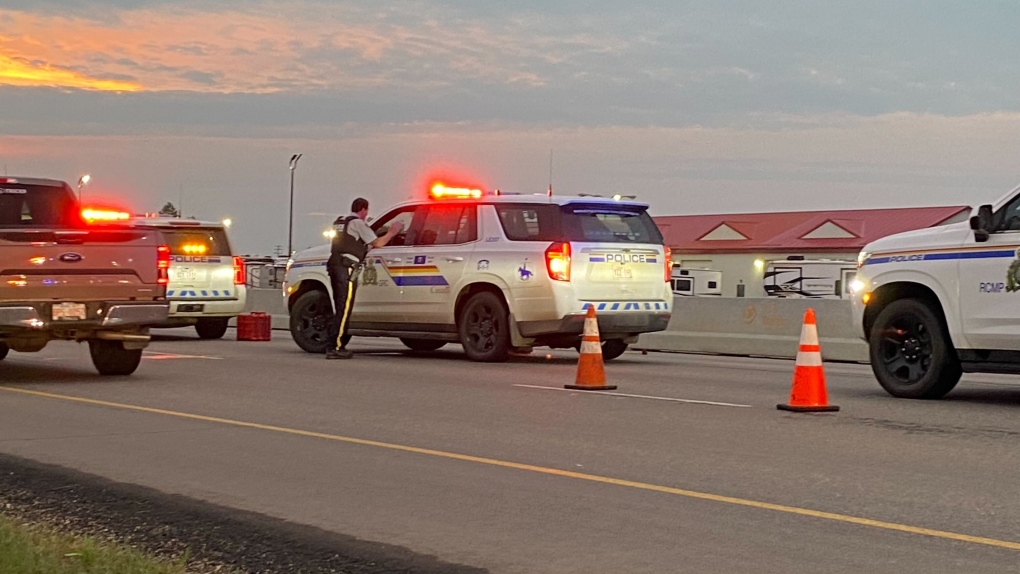
Leduc to ask Alberta gov't to lower Hwy 2 speed limit through city
CTV
The city's seven-member council voted unanimously at its meeting Monday evening in favour of lobbying Alberta's transportation ministry to lower the limit of its portion of the major north-south corridor between Edmonton and Calgary to 80 kilometres per hour from 110.
Leduc will be asking the province to reduce the speed limit of Highway 2 through its municipal boundaries.
The city's seven-member council voted unanimously at its meeting Monday evening in favour of lobbying Alberta's transportation ministry to lower the limit of its portion of the major north-south corridor between Edmonton and Calgary to 80 kilometres per hour from 110.
Leduc, population 30,000, is located 10 kilometres south of the Edmonton city limit beside the international airport.
The move comes from a recommendation from the city's traffic advisory committee, which endorsed it after reviewing collision data and anecdotal experiences after a speed-limit reduction to 80 km/h on the highway at the 65 Avenue interchange construction project, and considering 2018-19 provincial data that shows the Leduc portion of the corridor experiences double the average collision rate for Alberta divided highways.
The speed limit between Edmonton and Calgary is 110 km/h from Edmonton's Ellerslie Road on the north end to Calgary's Beddington Trail in the south.
"What really has sold me on this is the current 80-kilometre zone for the 65 Avenue interchange," said Mayor Bob Young, who referenced traffic open-house talks with the province over the last 20 years mulling about improvements to interchanges in the Leduc corridor that would likely cost hundreds of millions.
"I haven't had anybody complain to me yet about it being 80 ... Some people say, 'Well, they're not going 80.' Well, you know what? They're not doing 150 either or 140, so to me, this is a very logical thing to do. Rather than spending $500 million to physically change it, if we turn it into an 80 zone, it'll help noise (and) it'll help with safety."





















 Run 3 Space | Play Space Running Game
Run 3 Space | Play Space Running Game Traffic Jam 3D | Online Racing Game
Traffic Jam 3D | Online Racing Game Duck Hunt | Play Old Classic Game
Duck Hunt | Play Old Classic Game